Art Guides
Muhammad Ali’s Artwork, Inspired by His Faith and Activism, Heads to Auction
Five prints are in a sale of the collection of Baird Jones.
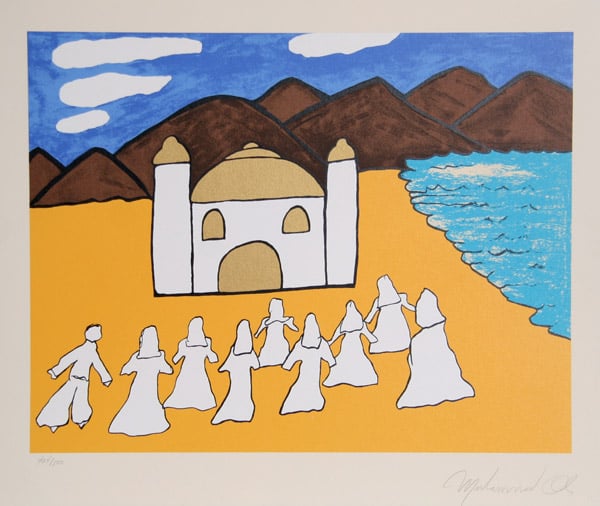
Five prints are in a sale of the collection of Baird Jones.

Sarah Cascone

“He was the most important political-cultural figure to survive the deadly tumult of the 1960s and flourish in the 1970s,” Wesley Morris wrote about Muhammad Ali in the New York Times. As the world mourns the boxing legend, who died at 74 on June 3, his under-appreciated talent as a visual artist is being celebrated in an upcoming auction at New York’s RoGallery.
Ali is just one of celebrities whose artwork will be included in the gallery’s June 15 sale of the estate of Baird Jones. A former artnet Magazine contributor who was part of the New York art world’s social scene for many years, Jones was a regular at Studio 54, the Warhol Factory, and Max’s Kansas City, and amassed a large collection of celebrity art by everyone from James Dean to Kurt Vonnegut before his death in 2008.
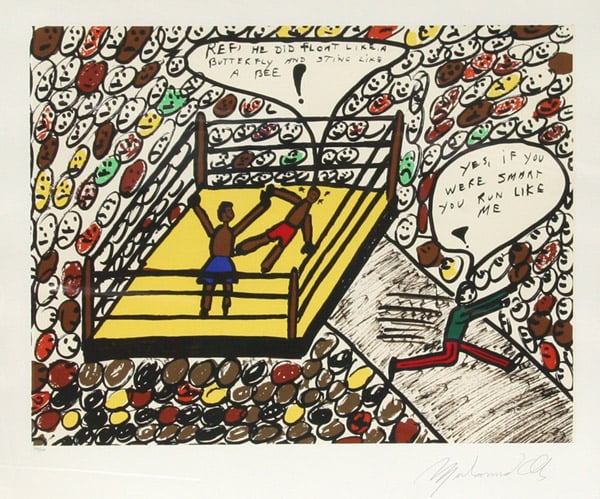
Muhammad Ali, Sting Like a Bee, (1979). Courtesy of RoGallery.
In addition to work by the likes of Gloria Vanderbilt, Brigitte Bardot, and Yogi Berra, Jones also owned a set of five prints that Ali published in 1979, including Let My People Go, which was commissioned by the World Federation of United Nations Associations.
At the time those pieces were created, RoGallery was approached by Ali’s manager, Jabir Herbert Muhammad, about selling the works, which were produced in editions of 500. Gallery owner Robert Rogal has been selling the prints, which he described to artnet News as Ali’s “personality, his life, in visual form,” ever since.
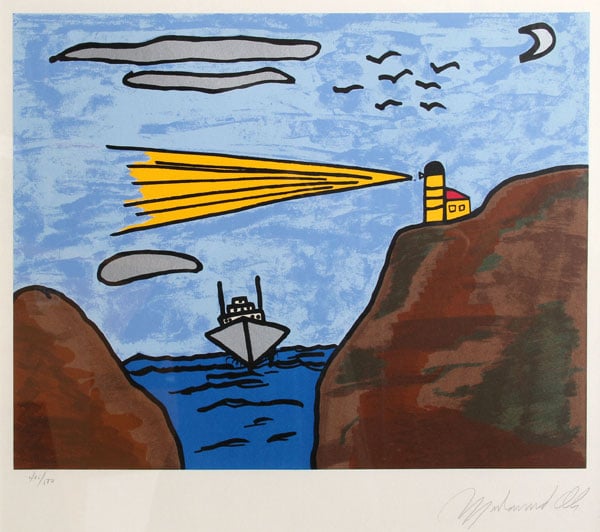
Muhammad Ali, Guiding Light, (1979). Courtesy of RoGallery.
The works show a strong sense of color and composition, and draw on Ali’s life experience, including his Muslim faith, his Civil Rights activism, and his time in the ring.
“I knew the Muhammad Ali was a hit from the day I got it,” Rogal added, noting that he initially priced the prints at $200 a piece and “today we get up to $5,000—and that was before he passed away.” According to the artnet Price Database, Ali’s best-selling work at auction is Sting Like a Bee, which sold for $2,900 at RoGallery in October 2010.
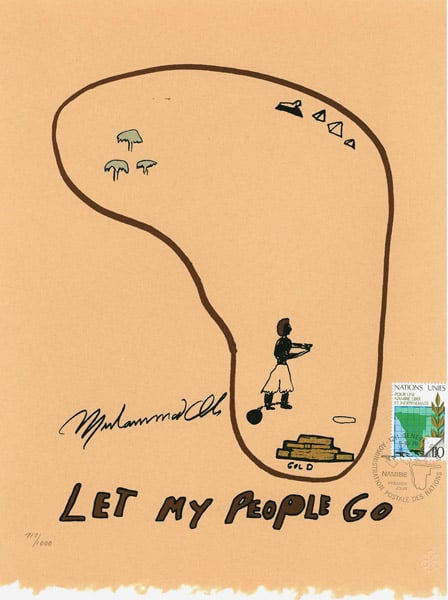
Muhammad Ali, Let My People Go, (1979). Courtesy of RoGallery.
According to Ali’s obituary in the New York Times, the boxer’s father, Cassius Marcellus Clay Sr., was “a church muralist who blamed discrimination for his failure to become a recognized artist.” There were early signs that Al had inherited that artistic inclination: In high school, “the only subjects in which he received satisfactory grades were art and gym.”
“The only reason he finished high school was because he was on the boxing team,” added Rogal. “He was not trained in poetry; he was not trained in drawing… he had a natural talent.”
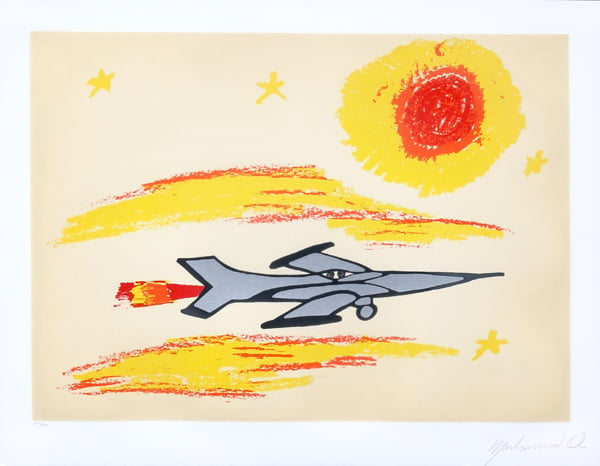
Muhammad Ali, Under the Sun, (1979). Courtesy of RoGallery.
In addition to the work of celebrities like musical legend Miles Davis (“you can see almost the jazz in his work!” Rogal exclaimed), the auctioneer is also excited about the work of cult leader Charles Manson and serial murderer John Wayne Gacy. “This is real killer art, I mean real killer art,” he promised.
For the work by Ali, bidding starts at just $400 for Let My People Go, with other lots starting at $1,000 or $2,000. “The big deal about the sale,” said Rogal, is that “everything is really priced to find a home.”